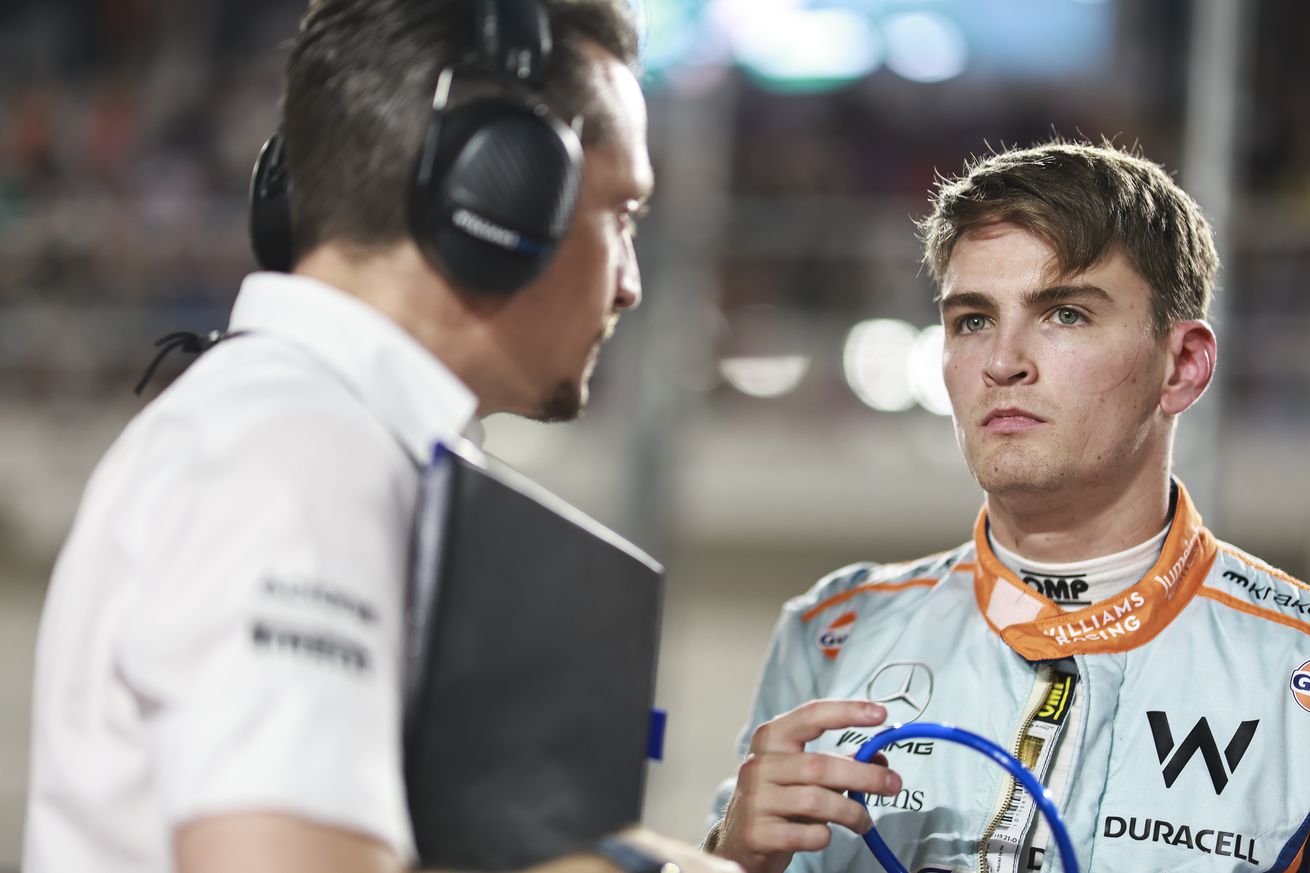Photo by Qian Jun/MB Media/Getty Images
In addition to fighting each other on the track, F1 drivers had to overcome the elements in the Qatar Grand Prix
Formula 1 drivers are used to dealing with difficult conditions.
But Sunday’s Qatar Grand Prix might have been the toughest test they have ever faced.
Drivers had to deal with punishing heat and high cornering speeds, and the combination made for a brutal evening at Lusail International Circuit. Williams driver Logan Sargeant retired early as a result of “intense dehydration” according to the team. “Following Logan’s retirement from the Grand Prix, he has been assessed and cleared by the medical team on-site after suffering from intense dehydration during the race weakened by having flu like symptoms earlier in the week,” said the team in a statement.
He was not alone. Alexander Albon, his teammate, also needed medical intervention after the race.”Following the Qatar Grand Prix, Alex was taken to the medical centre to be treated for acute heat exposure. He has now been assessed and cleared by the medical team,” said Williams in another statement.
They were perhaps the lucky ones. Esteban Ocon, who drove his Alpine to a points finish, had this to say following the race. “What a tough and physically difficult race for all of us! In the end, it was a great result for us in seventh place and six points in the bag. We had a great start to move up to fifth and credit to the team too for a well-executed strategy and pit stops,” said Ocon. “The conditions were extremely tough in the car and I did not feel well physically in the first half of the race. I was able to pull it together and focus on what I needed to do.”
“I did not feel well physically” might be the understatement of the year, given how Ocon described his condition to the media.
“I was feeling ill lap 15 and 16, I was throwing up for two laps inside the cockpit,” said the Alpine driver to the media. “And then I was like, ‘shit, this is going to be a long race’. I tried to calm down, I tried to remember that the mental side in sport is the strongest part of your body and I managed to get that under control and finish the race. But, honestly I was not expecting for the race to be that hard.”
Charles Leclerc called it the toughest race he had ever endured, and was convinced the rest of the grid shared that opinion. He said the race was “the toughest race for every driver in Formula 1 of our career – for everybody, no exception and I don’t believe the one that says it’s not.”
Asked by RaceFans what caused the conditions, Leclerc pointed to the heat, the layout of the track, and the tyre management mandates implemented by the sport’s governing body ahead of the race. “I think there were many things adding up,” said Leclerc to the media. “Obviously, the heat was extremely warm, we have a track where there are lots of high-speed corners. But I think the most significant part is the fact that we had to do three stops and that meant no tyre management in the high speed, which meant quali laps after quali laps.”
Lance Stroll, who suffered a pair of five-second penalties to drop him out of the points, pointed to the conditions as a possible reason why. “But I was passing out in the car, and they painted the kerbs and made the track narrower so you can’t even feel the kerbs,” said Stroll to the media after the race.
“You’re just trying to see it. But the problem is, you can’t see where you’re going because you’re passing out,” added Stroll. “I was fully fading out.”
Next year’s Qatar Grand Prix is slated for December, when temperatures should be cooler. But this is a situation that some drivers do not want to see repeated. “I know that this race next year is later on in the season and it will be a lot cooler a few months later,” said McLaren driver Lando Norris, who secured a podium finish. “But it’s something that needs to be thought of, and I’m sure we’ll speak about it because it shouldn’t have happened in the first place.”













